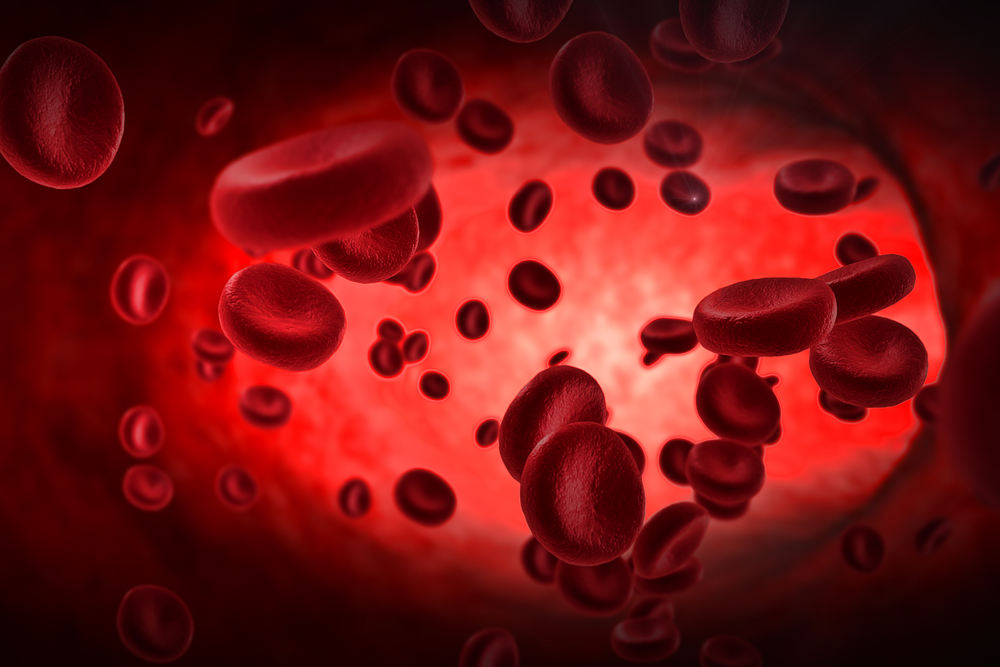Updated Alta Trial Results Support Advancement of SB-525 Gene Therapy for Hemophilia A
Written by |

Updated results from the Alta trial show that a single infusion with the highest dose of SB-525, an investigational gene therapy, yields dose-dependent and durable increases in clotting factor VIII (FVIII). The trial, in adults with severe hemophilia A , found no bleeding episodes up to 24 weeks following the infusion.
That highest dose of SB-525 — 3×1013 vector genomes, vg/kilogram, kg — led patients to reach normal FVIII activity. Participants no longer needed replacement therapy following a short preventive course post-SB-525-administration.
With these promising results, Pfizer has initiated a lead-in study (NCT03587116) to support SB-525 advancement to a Phase 3 registrational clinical trial. The six-month study will evaluate the current efficacy and safety of preventive replacement therapy in the usual care setting. It is currently recruiting participants worldwide.
The Alta trial’s most recent findings will be shared at the upcoming 61st Annual Meeting of the American Society of Hematology (ASH), to be held Dec. 7-10 in Orlando, Fla.
Data will be featured in a poster titled “Updated Follow-up of the Alta Study, a Phase 1/2, Open Label, Adaptive, Dose-Ranging Study to Assess the Safety and Tolerability of SB-525 Gene Therapy in Adult Patients with Severe Hemophilia A.”
SB-525 is a gene therapy candidate to treat hemophilia A that’s being developed by Sangamo Therapeutics in collaboration with Pfizer. It consists of a DNA sequence coding for the production of a working FVIII — the clotting factor missing in hemophilia A. That FVIII is carried and delivered to liver cells, where clotting factors are produced, using a harmless adeno-associated viral (AAV) vector.
The therapy’s safety and effectiveness for the treatment of adults with severe hemophilia A are currently being evaluated in the open-label Phase 1/2 Alta trial (NCT03061201).
The study is testing a single infusion into the vein (intravenous) of one of four ascending doses of SB-525: 9×1011 vg/kg; 2×1012 vg/kg; 1×1013 vg/kg; and 3×1013 vg/kg. Two people have been dosed per group, except for the highest dose group, which was expanded to five patients.
Updated trial data now released show the results for the two patients dosed in the third group — those given 1×1013 vg/kg — and the five individuals receiving the highest dose of 3×1013 vg/kg.
In the third group, a single infusion of SB-525 resulted in stable and clinically relevant increases in FVIII activity.
Stronger results were seen with SB-525’s highest dose. Of the five patients treated, data were available for four. For these participants, a single infusion with the highest dose of SB-525 led to normal FVIII levels with no bleeding events reported up to 24 weeks post-administration. These individuals no longer needed replacement therapy after the initial prophylactic period of up to about three weeks after SB-525 dosing.
In addition, preliminary tests from the high-dose group indicate similar activity of SB-525-derived FVIII and the clotting factor provided by Xyntha, Pfizer’s recombinant therapy for hemophilia A.
As to safety, one patient had treatment-related serious adverse events, namely low blood pressure and fever, occurring about six hours after infusion. These effects resolved with treatment within 24 hours, with no loss of FVIII expression.
Some patients also showed elevated blood levels of liver enzymes (ALT, alanine aminotransferase). However, these were reported to be mild and temporary increases, which were treated in a timely manner with corticosteroids.
Dosing in the fourth group is ongoing. At the upcoming meeting, Sangamo will disclose additional analyses of the trial data, including a follow-up of approximately 4 to 11 months after treatment.
“The rapid kinetics of Factor VIII expression, durability of response, and the relatively low intra-cohort variability in the context of a complete cessation of bleeding events and elimination of exogenous Factor VIII usage continues to suggest SB-525 is a differentiated hemophilia A gene therapy,” Bettina Cockroft, MD, MBA, chief medical officer of Sangamo said in a press release.
“We are pleased with the progress of the program toward a registrational Phase 3 study led by Pfizer, who announced it has enrolled its first patient in the 6-month Phase 3 lead-in study. We have recently completed the manufacturing technology transfer to Pfizer and initiated the transfer of the IND [investigational new drug].”


